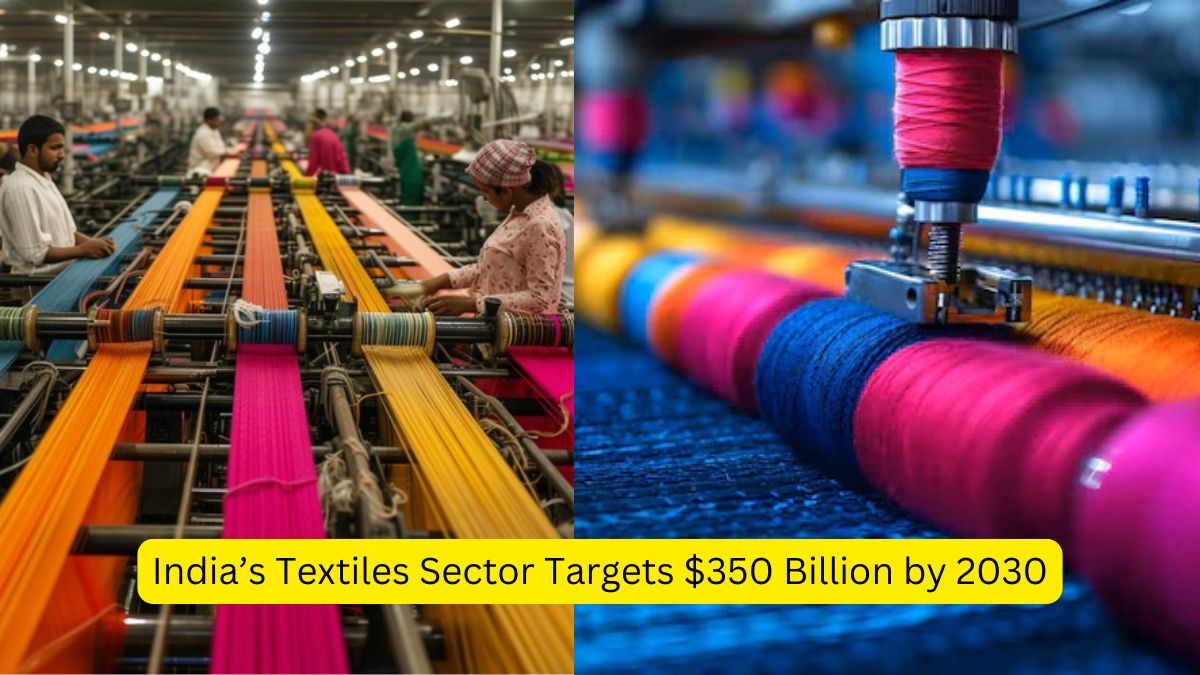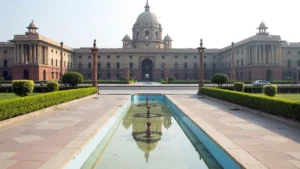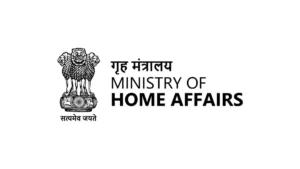India’s textiles sector is set for significant expansion, with an 11% year-on-year growth in Ready-Made Garments (RMG) of all Textiles exports, as per India’s trade data of August 2024, signaling a bright future. The Textiles sector in the country is expected to grow to USD 350 billion by 2030, driven by India’s inherent strengths and a strong policy framework that encourages investment and exports.
A number of schemes and policy initiatives as part of the government’s roadmap aim to leverage and catalyze these inherent strengths to help the textile sector achieve the USD 350 billion goal by 2030.
Key factors contributing to the sector’s expansion
- 11% Growth in (RMG) Exports
- India’s trade data for August 2024 reports an 11% year-on-year growth in RMG (Ready-Made Garments) exports, a positive indicator of the sector’s robust future.
USD 350 Billion Target by 2030
The textile sector is projected to grow to USD 350 billion by 2030, leveraging India’s inherent strengths like:
- End-to-end value chain capability
- Strong raw material base
- Large export footprint
- Rapidly expanding domestic market
Government Schemes Driving Growth
A number of key government schemes aim to catalyze this growth:
- PM MITRA Parks
- Over Rs. 90,000 crore investment is expected through the PM Mega Integrated Textile Region and Apparel (PM MITRA) Park scheme in the next 3-5 years.
- Seven parks have been sanctioned, and each is anticipated to attract Rs. 10,000 crore in investment, generating 1 lakh direct jobs and 2 lakh indirect jobs.
- Production Linked Incentive (PLI) Scheme
- Targeting the production of MMF (Man Made Fibers) Apparel, Fabrics, and Technical Textiles, the PLI Scheme expects over Rs. 28,000 crore in investment and projected turnover of over Rs. 2,00,000 crore, creating around 2.5 lakh jobs.
- National Technical Textiles Mission
- A specialized initiative promoting startups and research in technical textiles, focusing on sectors such as,
- Geotextiles, agro textiles, protective textiles
- Medical, defense, and sports textiles
- Environmentally friendly textiles
- PM MITRA Park Inauguration
- Last month, Prime Minister Narendra Modi laid the foundation stone for the PM MITRA Park at Amaravati, Maharashtra.
- These parks will offer world-class infrastructure and “plug and play” facilities to make India a global textile manufacturing hub.
State-Level Policy Support
In addition to central government initiatives, several states with high growth potential in textiles are introducing supportive policies to bolster the sector’s growth.
| Summary/Static | Details |
| Why in the news? | 11% year-on-year growth in Ready-Made Garments (RMG) exports in August 2024 |
| Sector Growth Target | Textile sector projected to reach USD 350 billion by 2030 |
| Key Contributing Factors | – End-to-end value chain capability
– Strong raw material base – Large export footprint – Expanding domestic market |
| Key Government Schemes | – PM MITRA Parks: Investment of Rs. 90,000 crore, 7 parks sanctioned, 1 lakh direct and 2 lakh indirect jobs
– Production Linked Incentive (PLI): Focus on MMF Apparel, Technical Textiles; Rs. 28,000 crore investment, 2.5 lakh jobs – National Technical Textiles Mission: Promotes startups and research in geotextiles, agro textiles, protective textiles, etc. |
| PM MITRA Park Inauguration | PM Modi laid the foundation for PM MITRA Park at Amaravati, Maharashtra, providing world-class infrastructure |




 Govt Launches Mobile Labs to Check Natio...
Govt Launches Mobile Labs to Check Natio...
 Big Change at Rashtrapati Bhavan! Lutyen...
Big Change at Rashtrapati Bhavan! Lutyen...
 India Launches ‘Prahaar’: New National C...
India Launches ‘Prahaar’: New National C...








